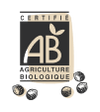The choice of organic amendments
What is an organic amendment?An organic amendment is a natural substance added to soil to improve its structure, fertility, and ability to support plant growth. Manure, compost, soil improvers, but also guano, ground horn, dried blood… several solutions can enrich the soil. Well-rotted manure Cattle manure - Rich in nitrogen, phosphorus, and potassium. - Promotes plant growth and improves soil structure. - Ideal for leafy vegetables and nutrient-intensive crops. Chicken manure - Excellent source of nitrogen, phosphorus, and potassium. - Helps increase the organic matter content of the soil. - Particularly suitable for fast-growing crops and fruiting vegetables. Horse manure - Balanced in nutrients, particularly nitrogen and potassium. - Improves soil structure and promotes optimal water retention. - Ideal for deep-rooted plants and perennial crops. Sheep manure - Contains moderate levels of nitrogen, phosphorus, and potassium. - Contributes to soil fertilization and plant growth. - Suitable for seasonal crops and Ornamental plants. Quality compost Compost is one of the most complete inputs. Indeed, it is described as both an amendment and an organic fertilizer. This means that on the one hand it improves the very structure of the soil and on the other hand, it fertilizes the soil and therefore provides future plants with nutrients essential for their development. In doing so, it also constitutes a form of plant protection. Humus increases the nutrient reservoir of the soil, improves water retention in the soil and its availability for plants. The ideal solution to enhance your compost is to spread it as mulch in your vegetable garden near young plants, demanding vegetables in the vegetable garden, roses, soils poor in humus, to lighten heavy soils and give consistency to light soils, etc. Nature, fauna and flora, will know perfectly how to exploit this compost and its action will be maximum. Tip: it is not always possible to put all the clippings in a composter, to use them spread the clippings as mulch in your vegetable garden and around your hedges. Same trick with the dead leaves that are abundant during the fall, use them to make your mulch. In compost or mulch, organic waste is transformed into humus and releases mineral salts that will nourish your plants. Soil improvers Plants need 3 elements to live: water, light but above all organic matter. Since the soil is composed mainly of minerals (silt, sand and clay) and very little organic matter, the latter must be added regularly to avoid impoverishing the cultivated soil. By burying soil improvers, we naturally provide mineral and organic elements that decompose thanks to the climatic effects and underground living beings to then be assimilated and nourish the cultivated plants. To quickly fertilize your soil before a crop, it is best to sow spring soil improvers. If your soil is not maintained or cultivated, the risk that it will become covered with weeds is high. Letting unwanted plants grow means competition for existing or future crops, with the likelihood that the seeds of these varieties will reseed if left in place. To prevent the proliferation of these harmful plants, sowing soil improvers is necessary. When sown very densely, some soil improvers, such as those presented below, have the ability to naturally smother unwanted plants thanks to their rapid growth. Once in place, the soil improver will compete with weeds by quickly covering the soil. If your soil is clayey, it is necessary to improve the quality of your soil to have a healthy vegetable garden with a good yield. Composed of microscopic mineral particles, clayey soil becomes very sticky in the presence of water and, conversely, very compact and hard in dry weather. In winter, when the weather is wetter, the root system of plants can then suffocate from the lack of air and the excess water contained in this type of soil. And when the weather is dry, it is difficult to re-moisten it. Some soil improvers have a powerful and dense root system that naturally promotes soil aeration. Ground horn Ground horn is a valuable organic amendment in gardening, providing a source of natural nitrogen, slow release of nutrients, improving soil structure and promoting microbiological life in the soil. It is an important element in sustainable soil management and plant cultivation. Dried blood Dried blood is an excellent source of nitrogen, a nutrient for plant growth. Due to its high solubility, dried blood dissolves quickly in the soil and quickly releases its nutrients. Like other organic amendments, desiccated blood can help improve soil structure by promoting the aggregation of soil particles and improving water retention and aeration. SeaweedSeaweed is rich in essential nutrients such as nitrogen, phosphorus, potassium, magnesium, calcium, and various trace elements. Seaweed is a valuable organic amendment in gardening, providing a rich source of nutrients (nitrogen, phosphorus, potassium, magnesium, calcium, and various trace elements), gradual nutrient release, improved soil structure, stimulated plant growth, and increased resistance to diseases and pests. They are an important element in sustainable soil management and plant cultivation. Marine guanoSeabird guano is a valuable organic amendment in gardening, providing a rich source of nutrients (nitrogen, phosphorus, potassium, calcium, magnesium and other trace elements), slow nutrient release, improvement of soil structure, stimulation of soil microbiological life and versatile use in a variety of crops. It is an important element in promoting healthy plant growth and sustainable soil management.





